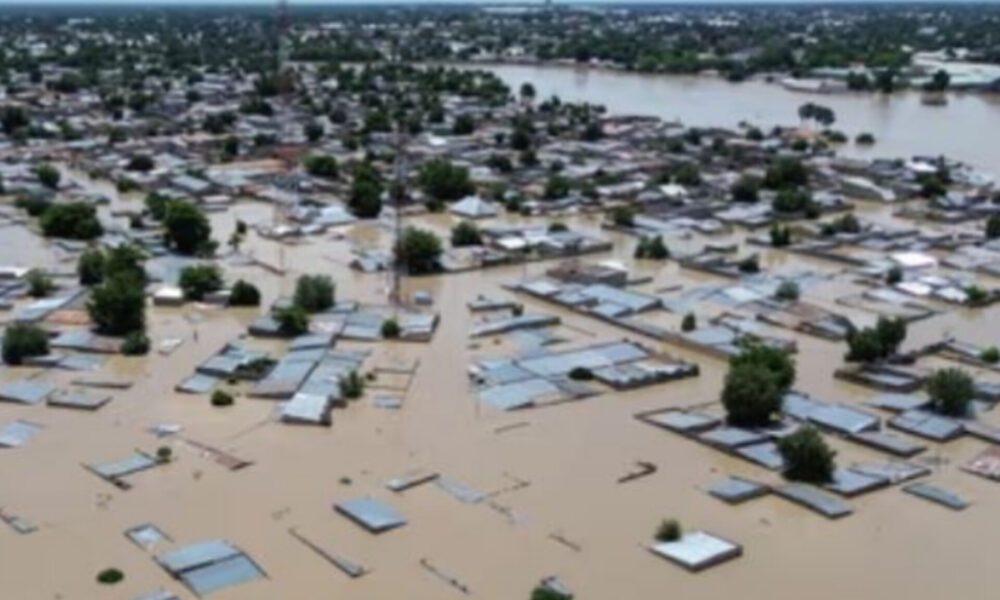The National Emergency Management Agency (NEMA) has reported that 259 persons have been killed by floods that displaced 625,000 persons so far in 2024
According to NEMA’s Director General, Zubaida Umar, the latest figures show that 259 people have lost their lives, while 625,239 have been forced to flee their homes. Additionally, 1,048,312 people have been affected by the floods, which have impacted 29 states and 172 local government areas.
Umar provided the update during the National Emergency Coordination Forum (ECF) meeting, where stakeholders gathered to reassess strategies and responsibilities in response to the disaster.
According to her, the flooding has been particularly severe in Borno State, where a broken dam has exacerbated the situation.
However, NEMA notes that the overall trend is consistent with predictions made in the Annual Flood Outlook released earlier this year.
“Except for the severity of the incident in Borno State due to the broken spillway of the Alau Dam, the trend does not indicate a total deviation from the predictions as contained in this year’s Annual Flood Outlook released by the Nigeria Hydrological Services Agency (NIHSA), which informed that in July to September 2024, 33 states and 135 LGAs are within flood high-risk areas.”

“For the period between October and November, 19 states and 44 LGAs have been indicated.”
Speaking on the Maiduguri flood, the NEMA DG commended the Governor of Borno State, Babagana Zulum, the government, and the Borno State Emergency Management for rising to the occasion and spearheading the response, rescue, and activation of internally displaced persons (IDP) camps for affected persons.
She added that NEMA and other agencies are currently providing nationwide interventions to the affected states.
She said, “Our ongoing intervention across the affected states include deployment of additional personnel to support search and Rescue operations; distribution of water purification and critical search and Rescue equipment; provision of food and non-food items to support the affected persons and the rehabilitation of displaced populations.
“Through our agency, NEMA, the Federal Government commiserates with those that have been affected by the flood disaster and assures them that necessary succour will sustainably be provided.
“We appreciate the support of our humanitarian partners and look forward to the sustained collaborative efforts of all stakeholders to ameliorate the suffering of affected people and also mitigate the impact of the flooding incidents across the country.”




